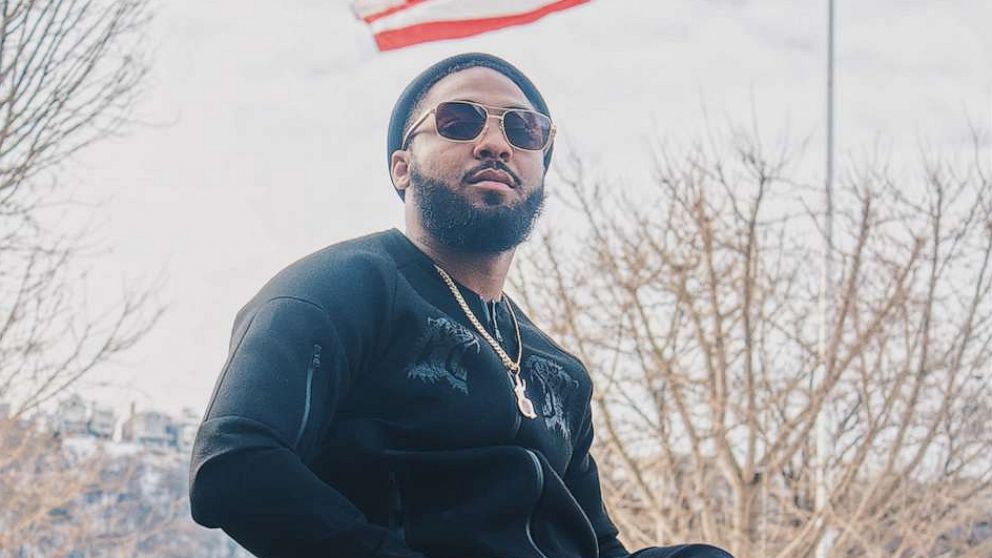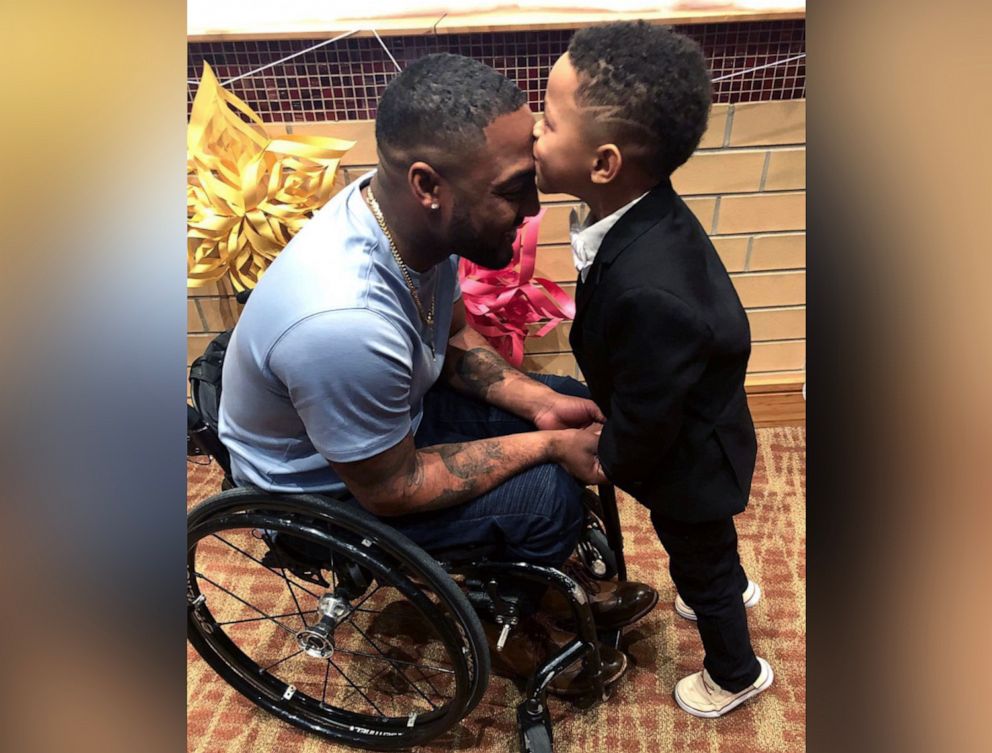Black man paralyzed after police shooting on healing and his advice for Jacob Blake
Sometimes the nightmares are about his father or son being shot by police. Other times, the nightmares are about him being shot all over again.
Leon Ford, who survived a police shooting eight years ago, said that nightmares along with PTSD, survivor's guilt and depression are just a few of the aftereffects of life as a Black man after being shot by cops.
Ford, a 27-year-old father left paralyzed from the waist down after a traffic stop with police in Pittsburgh in 2012 led to the shooting, believes the road to healing isn't linear, but something that is seasonal and requires work throughout every stage of life.
"There's so many layers of brokenness associated with the trauma of being a survivor," Ford told ABC News. "I realized that I'm only able to be positive because of the internal maintenance that I've used to upkeep my mental health and spiritual health."
On Nov. 12, 2012, Ford, then 19, was pulled over for a traffic stop by two Pittsburgh officers in Highland Park and another officer later arrived on the scene. Although he provided identification, one officer mistook him for a gang member and jumped inside his car and during a subsequent struggle, he ended up shot five times.

While in the hospital, Ford said he was handcuffed to his bed. Though he survived, the shooting left him paralyzed. In 2018, the city of Pittsburgh reached a $5.5 million settlement with Ford.
Ford, who has shown his support for other police shooting victims, announced a run for Pittsburgh City Council on the sixth anniversary of being shot, before he decided to bow out of the race to fulfill other commitments.
Now, Ford is offering advice for the family of Jacob Blake -- a Black man also left paralyzed from the waist down after being shot seven times in the back by police in Kenosha, Wisconsin. The officers from the Kenosha Police Department who were involved in the incident have since been placed on administrative leave as the investigation continues into the shooting of 29-year-old Blake, who remains hospitalized.
While it remains unclear by medical professionals if Blake will be paralyzed permanently, Ford is opening up about the mental health ramifications as a survivor.
"I would encourage them to embrace their journey. Know that they aren't alone. They are going to be supported, they are loved," Ford said. "It's not going to be easy ... but it is possible to still have a good life."
Ford, who grew up on the East Side of Pittsburgh, said that some of his coping mechanisms include reading, meditating and sharing his story. This includes writing about his journey in his book "Untold: Testimony and Guide to Overcoming Adversity" and serving as the executive producer for the short film "LEON," where he shares details of his childhood and mentors youth in his hometown.
In June, Ford was also part of a virtual town hall series to discuss the impact of racial injustice during the pandemic which was hosted by the Obama Foundation with appearances by former President Barack Obama, the late Rep. John Lewis and executive director of the Equal Justice Initiative, Bryan Stevenson.
Ford, who is the father of a 7-year-old son, said that fatherhood is important to him and that he hopes to continue being a role model for his son. In a now-viral video, his son holds his father's walker and encourages him to "keep pushing" and not to "give up" as his dad recovers from his injury.
"My son is my motivation as I am his. My son admires me and looks up to me with the purest light in his eye," Ford wrote on social media.
Ford said that part of taking care of himself mentally is going to therapy, which he first started about a year ago after noticing how the coping strategies he had in place were no longer conducive to his needs. Among the things that he also realized weren't beneficial: watching police shootings on the internet, which often go viral.
Researchers say that constantly watching fatal shootings of Black Americans, who are disproportionately killed by police in America, on social media, contributes to emotional trauma and anxiety, according to a Rutgers study published last month.

Dr. George James is a Philadelphia-based marriage and family therapist who also has experience working with emotional trauma, specifically stress caused by racial injustices. He said finding a balance between being informed and protecting your mental health is crucial.
"Seeing Black people die and mistreated is not humane ... this is not a video game. We are talking about people's lives," he told ABC News.
James, who also serves as Council for Relationships' chief innovation officer, said that even as a Black husband and father, the current racial climate is deeply personal and often requires him to remember to follow what he preaches.
"I also have to practice what I say to others. My self-care and my family's self-care are extremely important. In order to be there for others I have to take care of myself," he said.
James believes that while the trauma Blake and his family are experiencing is "intense and overwhelming," having a strong support system, going to therapy and finding motivation in the stories of others will help the healing process.
"Seeing examples like Leon Ford can help them to know it's possible to make it to a better place," James said.



